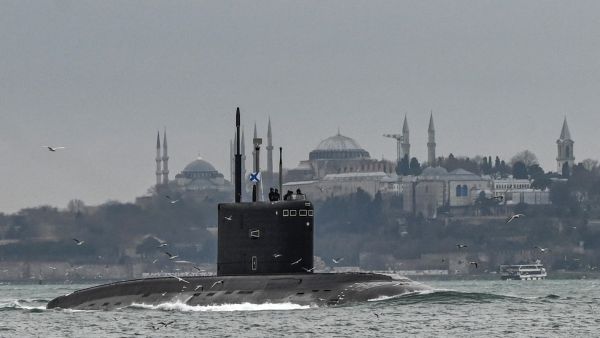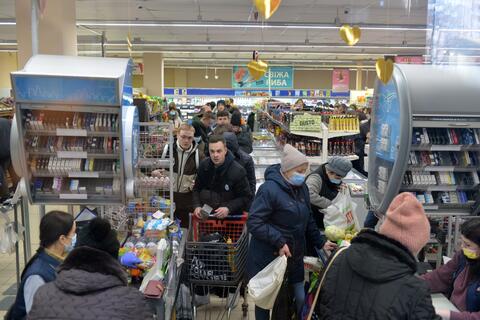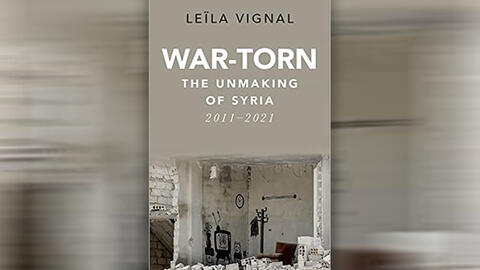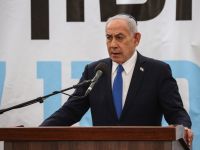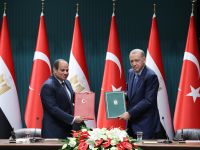The invasion of Ukraine has led to a deluge of analysis from the commentariat pondering Turkey’s political alignments with Russia and the West. Until Russia began the invasion, Ankara had been positioning itself neatly between Russia and the U.S.. However, things appear to be changing as President Recep Tayyip Erdoğan distances himself from Moscow.
Turkey, a NATO state, shares a maritime border with Russia and Ukraine. The Bosphorus is controlled by Turkey and is a key strategic passageway, allowing access to warm-water ports for Russian naval and merchant vessels.
Following the invasion, Erdogan said, “we find [Russian] military action unacceptable and reject it. This step, which we see as contrary to international law, is a heavy blow to the peace, tranquility, and stability of the region.” But Ankara has opposed economic sanctions on Russia.
Turkey closed the Bosphorus after the Russian invasion. Ankara cited the 1936 Montreux Convention to close access to the Black Sea during times of war. Washington and other NATO states welcomed Ankara’s decision.
But unlike other NATO states, Turkey has kept its airspace open to Russia. It has pushed for dialogue rather than sanctions or more direct intervention.
Despite Turkey’s attempt to position itself as a moderate voice, the Turkish military has been dragged into a rhetorical fight on social media. The Ukrainian embassy tweeted that a Turkish drone was helping repel Russian forces. The embassy went on to say that the attack was revenge for the deaths of 34 Turkish soldiers who were killed by Russian planes in Syria in 2020. Turkish government social media accounts refuted the Ukrainian tweets.
Turley’s supply of drones to Ukraine has fanned the flames of partisanship outside of Turkey. As the Turkish journalist Fahim Tastakim has written, “Kyiv has been showering praise on the success of Turkey’s Bayraktar TB2 armed drones, fanning the controversy. Kyiv’s underscoring of the success of the Turkish drones has been widely seen as Ukraine’s attempt to force Turkey to take an active pro-Ukrainian side in the war.”
Moscow will be looking for Turkey to buy gas as demand from Europe and the U.S. halts and the economic situation in Russia worsens. “The last few years saw little inclination to develop these [southern] resources because interest in developing new gas finds and extending the reach of older ones was limited by expectations that the transition to renewables would occur much faster,” Debra Cagan, distinguished energy fellow, Mediterranean Basin, Middle East, and Gulf Initiative of the Transatlantic Leadership Network, has said.
“Now that gas is being widely accepted as a longer-term transition fuel, pursuing these other options makes more sense. However, until Turkey and the other countries in the East Mediterranean come to some agreement on the boundaries of exclusive economic zones, companies will avoid investment in projects that may be subject to boundary disputes.”
Meanwhile, Russia has said sanctions have created a stumbling block over reaching a renewed nuclear deal with Iran. Russian Foreign Minister Sergey Lavrov has said Russia is seeking a guarantee that its military, investment, and trade relations with Iran will not be hindered by U.S. sanctions. The U.S. has dismissed the claims as “irrelevant.”
Russia’s invasion of Ukraine will have important consequences for the Middle East. Military involvement in Syria, the Iran nuclear deal, and Turkey’s position in NATO could become unmoored from present realities as the invasion continues in eastern Europe.


